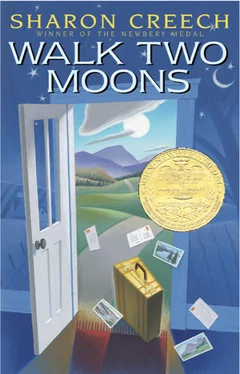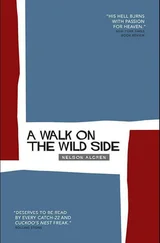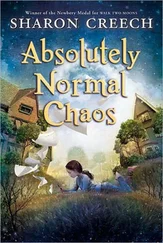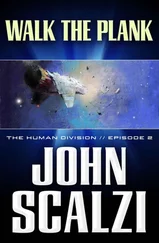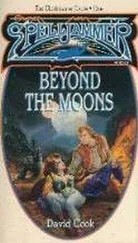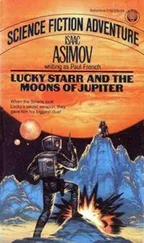Although I was terrified when I drove out of the parking lot, once I was on the highway, I felt better. I drove slowly, and I knew how to do it. I prayed to every passing tree, and there were a thumping lot of trees along the way.
It was a narrow, winding road, without traffic. It took me four hours to drive the hundred miles from Coeur d’Alene to the top of Lewiston Hill—which, to me, was more of a mountain than a hill. I pulled into the overlook at the top. In the valley far below was Lewiston, with the Snake River winding through it. Between me and Lewiston was the treacherous road with its hairpin turns that twisted back and forth down the mountain.
I peered over the rail, looking for the bus that I knew was still somewhere down there on the side of the mountain, but I couldn’t see it. “I can do this,” I said to myself over and over. “I can do this.”
I eased the car back onto the road. At the first curve, my heart started thumping. My palms were sweating and slippery on the wheel. I crept along with my foot on the brake, but the road doubled back so sharply and plunged so steeply that even with my foot on the brake, the car was going faster than I wanted it to. When I came out of that curve, I was in the outside lane, the one nearest to the side of the cliff. It was a sharp drop down, with only a thin cable strung between occasional posts to mark the edge of the road.
Back and forth across the hill the road snaked. For a half mile, I was on the inside against the hill and felt safer, and then I came to one of those awful curves, and for the next half mile I was on the outside, and the dark slide of the hillside stretched down, down, down. Back and forth I went: a half mile safe, a curve, a half mile edging the side of the cliff.
Halfway down was another overlook, a thin extra lane marked off less as an opportunity to gaze at the scenery, I thought, than to allow drivers a chance to stop and gather their wits. I wondered how many people had abandoned their cars at this point and walked the remaining miles down. As I stood looking over the side, another car pulled into the overlook. A man got out and stood near me, smoking a cigarette. “Where are the others?” he asked.
“What others?”
“Whoever’s with you. Whoever’s driving.”
“Oh,” I said. “Around—”
“Taking a pee, eh?” he said, referring, I gathered, to whoever was supposedly with me. “A helluva road to be driving at night, isn’t it? I do it every night. I work up in Pullman and live down there—” He pointed to the lights of Lewiston and the black river. “You been here before?” he said.
“No.”
“See that?” He pointed to a spot somewhere below.
I peered into the darkness. Then I saw the severed treetops and the rough path cut through the brush. At the end of this path I could see something shiny and metallic reflecting the moonlight. It was the one thing I had been looking for.
“A bus went off the road here—a year or more ago,” he said. “Skidded right there, coming out of that last turn, and went sliding into this here overlook and on through the railing and rolled over and over into those trees. A helluva thing. When I came home that night, rescuers were still hacking their way through the brush to get to it. Only one person survived, ya know?”
I knew.
42
THE BUS AND THE WILLOW
When the man drove off, I crawled beneath the railing and made my way down the hill toward the bus. In the east the sky was smoky gray, and I was glad for the approaching dawn. In the year and a half since the trail was hacked out, the brush had begun to grow back. Wet with dew, straggly branches slapped and scratched at my legs and hid uneven ground so that several times I tripped, tumbling and sliding downward.
The bus lay on its side like an old sick horse, its broken headlights staring out mournfully into the surrounding trees. Most of the huge rubber tires were punctured and grotesquely twisted on their axles. I climbed up onto the bus’s side, hoping to make my way down to an open window, but there were two enormous gashes torn into the side, and the jagged metal was peeled back like a sardine tin. Through a smashed window behind the driver’s seat, I saw a jumbled mess of twisted seats and chunks of foam rubber. Everything was dusted over with fuzzy, green mold.
I had imagined that I would drop through a window and walk down the aisle, but there was no space inside to move. I had wanted to scour every inch of the bus, looking for something—anything—that might be familiar.
By now the sky was pale pink, and it was easier to find the uphill trail, but harder going as it was a steep incline. By the time I reached the top, I was muddy and scratched from head to toe. It wasn’t until I had crawled beneath the railing that I noticed the car parked behind Gramps’s red Chevrolet.
It was the sheriff. He was talking on his radio when he saw me, and he motioned for his deputy to get out. The deputy said, “We were just about to come down there after you. We saw you up on top of the bus. You kids ought to know better. What were you doing down there at this time of day, anyway?”
Before I could answer, the sheriff climbed out of his car. He settled his hat on his head and shifted his holster. “Where are the others?” he said.
“There aren’t any others,” I said.
“Who brought you up here?”
“I brought myself.”
“Whose car is this?”
“My grandfather’s.”
“And where is he?” The sheriff glanced to left and right, as if Gramps might be hiding in the bushes.
“He’s in Coeur d’Alene.”
The sheriff said, “Pardon?”
So I told him about Gram and about how Gramps had to stay with her and about how I had driven from Coeur d’Alene very carefully.
The sheriff said, “Now let me get this straight,” and he repeated everything I said, ending with, “and you’re telling me that you drove from Coeur d’Alene to this spot on this hill all by yourself?”
“Very carefully,” I said. “My gramps taught me how to drive, and he taught me to drive very carefully.”
The sheriff said to the deputy, “I am afraid to ask this young lady exactly how old she is. Why don’t you ask her?”
The deputy said, “How old are you?” I told him. The sheriff gave me a stern look and said, “I don’t suppose you would mind telling me exactly what was so all-fired important that you couldn’t wait for someone with a legitimate driver’s license to bring you to the fair city of Lewiston?”
And so I told him all the rest. When I had finished, he returned to his car and talked into his radio some more. Then he told me to get in his car and he told the deputy to follow in Gramps’s car. I thought the sheriff was probably going to put me in jail, and it wasn’t the thought of jail that bothered me so much. It was knowing that I was this close and might not be able to do what I had come to do, and it was knowing that I needed to get back to Gram.
He did not take me to jail, however. He drove across the bridge into Lewiston and on through the city and up a hill. He drove into Longwood, stopped at the caretaker’s house, and went inside. Behind us was the deputy in Gramps’s car. The caretaker came out and pointed off to the right, and the sheriff got back in the car and drove off in that direction.
It was a pleasant place. The Snake River curved behind this section, and tall, full-leaved trees grew here and there across the lawn. The sheriff parked the car and led me up a path toward the river, and there, on a little hill overlooking the river and the valley, was my mother’s grave.
On the tombstone, beneath her name and the dates of her birth and death, was an engraving of a maple tree, and it was only then, when I saw the stone and her name—Chanhassen “Sugar” Pickford Hiddle—and the engraving of the tree, that I knew, by myself and for myself, that she was not coming back. I asked if I could sit there for a little while, because I wanted to memorize the place. I wanted to memorize the grass and the trees, the smells and the sounds.
Читать дальше
